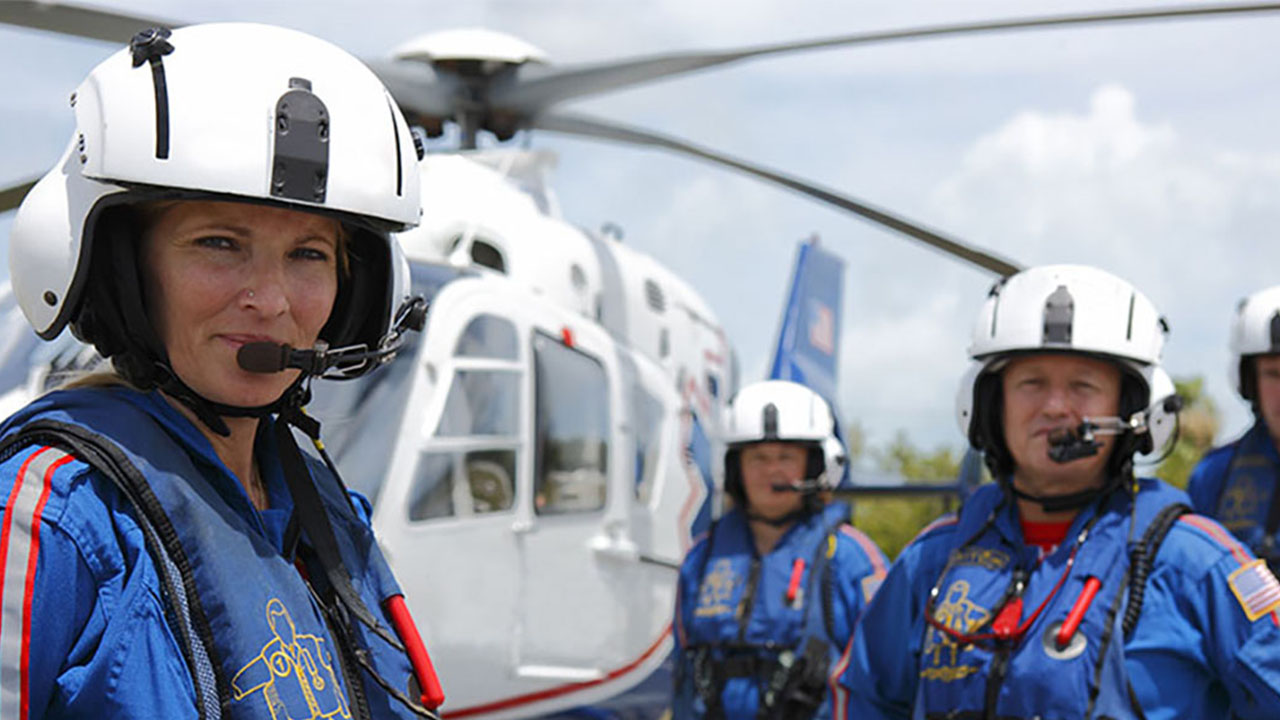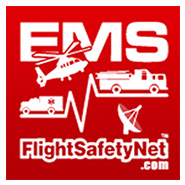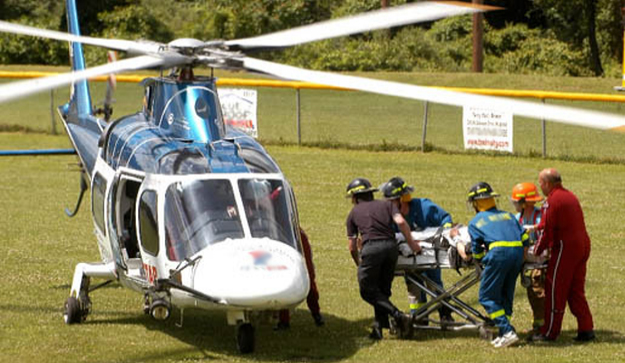Flight Interviews aren’t just about giving the right answers—they’re about asking the right questions.
Flight interviews are intimidating.
But what many nurses, medics and pilots don’t realize is…
A flight interview is a two-way street.
Employers aren’t the only ones who get to ask questions.
As an air medical candidate, it’s important you know how and when to voice your most important questions about the company, the position and the state of the air medical industry.
Flight jobs are competitive.
Flight jobs are so competitive that it’s really not enough to just nail the questions you’re asked. Answering the questions you’re asked correctly, confirms you’re qualified. But that’s not nearly enough to get hired. If you want to stand out in a crowd of highly qualified candidates, you have to show your expertise by asking the right questions too.
So how do you do it?
This article will get you started. Below are 10 questions to ask in your next flight interview.
10 Smart Questions To Ask In Your Flight Job Interview
1.) “What are the most important characteristics that someone needs to succeed in this position?”
Listen closely to how your interviewer answers this question.
Flying air medical may be your dream, but this may not be your dream employer.
The answer to this question can help you decide whether or not the position is the best fit for you. If the interviewer’s answer is, “self-starter” or “independent,” this could mean the position is what you’re expecting. Or, it could mean your support is very limited. You have to decipher the meaning on your own. And don’t sweat it, it’s usually pretty obvious.
2.) “What is the reason for the open position? Is it a new position, or did someone leave?”
Most flight nurses, flight medics and EMS pilots love their jobs.
For this reason, the most typical response to this question is a retirement or (in a perfect world) an expansion of the flight program. There is of course some turnover of employees, but it’s usually very low.
You can also use the answer to this question to gauge how much information your interviewer is willing to share. If you’ve done your basic homework, you already have some idea what this answer is relative to your target flight program.
3.) “How does this flight program measure success?”
The answer you want is some version of serving the local community and helping their own employees develop and grow. That’s the perfect world answer.
You may hear something less, like a balance between safety and profitability. And that’s not a bad thing. It more than likely means your interviewer is being very open with you. Reality is air medical programs do need to maintain profitability to operate over the long haul.
However, if your interviewer jumps directly to success equals X amount of cases flown per month, consider it a red (or at least yellow) flag. If your interviewer has the numbers on the tip of their tongue, the program is watching this metric very closely. And it’s a fair assumption the reason they’re watching this metric closely is long term viability. This may not be your best choice.
4.) “Is there anything about myself, my skills or my background that have made me stand out as someone who might not be the right fit for this position?”
Do not be afraid to ask this question.
I mention this because some of my coaching students are hesitant. They incorrectly believe it’s “too forward” or “inappropriate” for a flight interview. They’re wrong.
Remember that you’re the prize — in every interview you go to. You can and should ask this question. It shows your confidence and demonstrates your expertise with the “Get a Flight Job” process. Most importantly, the answer will help you make smarter interview decisions in the future.
5.) “What are some challenges that will face the person filling this position?”
This question also makes some of my coaching students uncomfortable.
The reason is how this question forces your interviewer to disclose some of the potentially negative things about the position.
It’s important to ask and you should ask it. You may discover something that changes your whole perception of the job. Don’t you want to know ahead of time if your dream base flies all inter-hospital transfers and never does a scene call?
6.) “How will you judge my success? What will have happened six months from now that will demonstrate that I have met your expectations?”
This question is one part psychology, and one part good old fashioned interview questioning.
The psychology behind this question is referred to as future tensing. You’re basically forcing your interviewer to think of you in the future. But not just any future. A future that includes you on the flight team. That’s a good thing when it comes to the interviewer remembering you and thinking highly of you.
The second part or benefit of the question is the inherent value in whatever your interviewer shares. The ability to define and measure success is obviously really important to your actual success.
7.) What is the next step in the hiring process?
This question is important even if you already know the answer. Why?
Because asking this question gets a certain level of commitment from your interviewer.
It also gives you the ability to follow up with an email or phone call regarding the next step in the hiring process. And last but not least, the answer to this question will give you a little peace of mind when the interview is over. Knowing what’s next will be important to you then.
8.) When can I expect to hear back?
Interviewers expect this question from strong candidates. Don’t be afraid to ask it.
Knowing a tentative time frame gives you leverage to follow up. You never want to follow-up in “pest” mode, and knowing time frames stated by your interviewer keeps you from doing so.
If you’re interviewer says two weeks from today, and four weeks have passed without hearing anything, it’s completely reasonable to send a follow-up email. Obviously, you can only do this if you know the time frames.
9.) When do you hope to make someone an offer? When is the anticipated starting date for this position?
I realize this is actually two questions. But the theme is close enough to group the questions together.
The answer to this question directly influences your ability to follow up in a timely manner. It also makes you look smart. The interviewer already assumes that you’re smart, but confirming this in an interview is obviously a good thing.
10.) Whom should I reach out to if I have any further questions?
First and foremost, don’t say “whom” in your interview. It’s a grammar thing, don’t get tripped up by it. Just be yourself and speak naturally in your interview.
Knowing who to contact is important for obvious reasons.
How Do You Know These Questions Work?
How do you know if these questions will work in your flight interview?
The real litmus test is whether or not you advance to the next phase of the flight interview process.
Having said that, you can rest assured these questions have benefited hundreds of EMS Flight Safety Network coaching students over the last three years.
Remember, successful flight interviews are never about single events or questions. Your success is dependent on how you put all the pieces of the “get a flight job” process together.
Have confidence in yourself. You can do it!
[divider style=”4″]
Are you serious about flying air medical? Get EMS flight job tips and advice sent straight to your inbox? Get The Net newsletter. Sign up here (it’s free):
[shortcode-variables slug=”optin-form”]
Listen to the audio version here:



2 replies to "10 Smart Questions To Ask In A Flight Interview"
More like, in no specific order:
“What is your continuing education training program for medical crew?”
“What percentage of your flights are 1st response, ALS intercept, IFT, Rescue, Public Relations and Training?”
“How do you train and maintain AMRM skills in your crews?”
“What sort of preflight risk management matrix does your program use?”
“Do your helicopters have autopilots?”
“How do you maintain IFR proficiency in your Captains?”
“Does your program participate in the ‘www.weatherturndown.com’ notification site?”
“What percentage of your flight requests are turned down for weather?”
“If 100% is the number of flights your program needs to fly to break even each month with the current payor mix and reimbursement rates, what monthly flight percentage are you averaging?”
“Does your helicopter have fuel bladders or is it certified under the pre 1994 standards?”
Malcolm,
Thanks for sharing. All good questions in the right context.
Clear Skies & Tailwinds